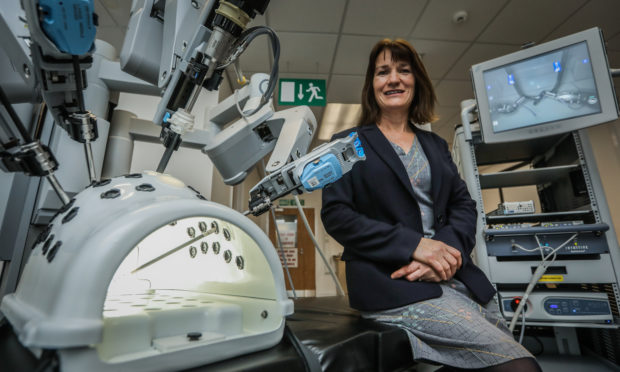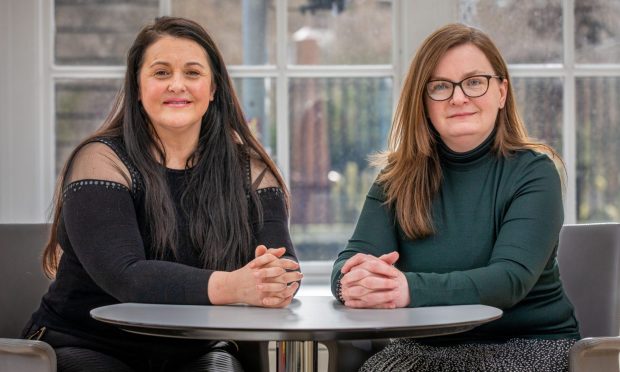Dundee is set to lead the country in training medics to use surgical robots to treat patients.
The Dundee Institute for Healthcare Simulation at Ninewells Hospital is developing Scotland’s first training programme for robotic-assisted surgery after taking delivery of a £1.7 million da Vinci Xi Robot.
The robot has four, thin arms that are inserted into a patients through strategically placed incisions no more than two centimetres long.
These are then manipulated by a surgeon using hand and foot controls, allowing them to operate without the need for large incisions.
Surgical robots are used to carry out operations across four health boards in Scotland, but surgeons must travel to England or overseas to be trained in their use.
The installation of the da Vinci Xi robot at DIHS — a medical education centre formed by the University of Dundee, NHS Tayside and industry partners Medtronic — is the first step towards a full robotic training centre being established north of the border.
Dundee University and NHS Tayside staff were given a first experience of robotics training on Thursday when operators showcased the da Vinci’s full range of abilities in a simulated setting.
The robot will be used to train surgeons and theatre staff across disciplines including urology, gynaecology, ENT and general surgery.
A range of courses from basic robotic skills to advanced masterclasses will be available at DIHS. Training will also be given to surgeons alongside the conventional components of existing medical courses.
DIHS co-director Dr Vanessa Kay predicted robotics will transform the surgical process in a similar way to keyhole surgery, pioneered in Dundee by Sir Alfred Cuschieri.
She said: “No one was doing laparoscopic surgery when Sir Alfred pioneered its use and clinical implementation but now 70% of all surgery is minimally invasive.
“Soon we will start to see robotic surgery taking on more and more of the procedures currently done as a result of Sir Alfred’s work.”
She said there were many advantages to robotic surgery for both patients and surgeons.
“Evidence has shown that robotics can lead to better outcomes, reduced length of hospital stays, reduced amounts of blood lost during surgery and improved accuracy of technique.
“As such, it is vital that Scotland is at the forefront of robotics training and implementation.”
Dr Kay added: “Robotics are still not perfect, however, so research and development remains vital and we want companies to get involved in this process through DIHS. We are immensely grateful for the support of our partners who have enable us to take this step towards a full robotics training centre.”
The da Vinci robot installed at Ninewells has been made available to DIHS as a result of its academic and commercial partnerships with organisations including Mid Essex Trust Hospital Services Trust and Intuitive Surgical, manufacturers of the robot.
DIHS was officially launched at the University’s School of Medicine at Ninewells last year.
Refurbished at a cost of £250,000, it doubled training capacity and brought together the university’s Clinical Skills and Surgical Skills centres to form the first single-site facility in Scotland offering both surgical and clinical training.
Doctors from around the world are among those who will take advantage of the ground-breaking training opportunities on offer at DIHS.










